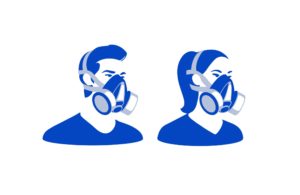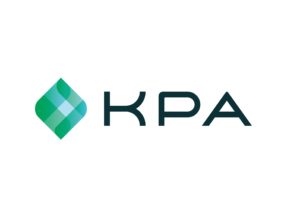
KPA guest column: Things to know about respirator evaluations, fit testing
By onBusiness Practices | Education | Legal | Repair Operations
Editor’s note: Respiratory protection violations represented the No. 1 source of citations experienced by the NAICS 811121 “Automotive Body, Paint, and Interior Repair and Maintenance” segment last year. Thus, body shops might benefit from some recent advice from the compliance assistance firm KPA, which graciously allowed us to share their April 28 blog post on the topic. It’s presented here with edits.
By Toby Graham, KPA
Respirators are a must in workplaces that expose employees to hazardous airborne contaminants. But wearing a respirator can put an extra burden on your body. Workers with underlying medical conditions may be at risk if they work while wearing one. So the Occupational Safety and Health Administration (OSHA) has requirements before any employee can wear one.
OSHA standard
OSHA’s Respiratory Protection standard (29 CFR 1910.134) requires employers to have a respiratory protection program when employees need respiratory protection. Before wearing a respirator, workers must have a medical evaluation first using a mandatory medical questionnaire or an equivalent method. Workers must also be fit tested before wearing a respirator in the workplace.
Medical evaluations
The requirements for medical evaluations include:
- Employers must identify a physician or other licensed health care professional (or PLHCP for short) to perform all medical evaluations using the medical questionnaire in Appendix C of the Respiratory Protection standard or an equivalent medical examination. Note that there are different sections within the questionnaire – some are mandatory, and some can be added at the health care professional’s discretion.
- Employers must provide a follow-up examination for employees whose initial medical evaluation demonstrates the need for one. The employer must provide the employee an opportunity to discuss the questionnaire and examination results with the health care professional.
- Employers can’t review employees’ responses. Employees should give completed questionnaires directly to the health care professional.
- Make sure the health care professional understands the type of respirator you plan to use, the nature of the work, and the work environment.
- Provide time during regular working hours for employees to complete the questionnaire at no cost to them.
Fit testing
Conduct quantitative or qualitative fit testing for all employees required to wear either positive or negative pressure tight-fitting facepiece respirators. This includes both air-purifying and atmosphere-supplying respirators operating in either a positive or negative pressure mode. It does not include loose-fitting facepieces.
Conduct additional fit testing if an employee experiences a change in a physical condition that could affect the seal on a tight-fitting facepiece respirator. This requirement is triggered by a physical change:
- Reported by the respirator user.
- Observed by the employer, a health care professional, supervisor, or program administrator.
- Physical changes in the employee that might affect the facepiece-to-face seal could include, for example, a noticeable change in body weight, facial scarring, extensive dental work, or cosmetic surgery.
Why violations happen
Violations can occur when companies do not implement the following components of OSHA’s Respiratory Protection Program:
- Conduct a hazard evaluation
- Establish a respiratory protection program
- Medical Evaluations
- Fit testing
- Training
Signs you’re at risk
- Your workers are exposed to hazardous chemicals
- Your workers are exposed to harmful smokes, gases, fumes, and vapors
- Your employees enter confined spaces to conduct work
- Your workers are exposed to oxygen deficient atmospheres or other hazardous atmospheres
Respiratory protection violation prevention checklist
- Have you identified and evaluated potential respiratory hazards in the workplace?
- Have you documented employees’ exposure to respiratory hazards (i.e., personal exposure monitoring)?
- Have you selected respirators based on the air contaminants employees are exposed to, including the expected exposure level?
- Is your written program available to any employee who wears a respirator?
- Have you provided respirator medical evaluations to workers required to use respirators or who are permitted to use tight-fitting respirators voluntarily?
- Have you fit-tested employees who are required to wear tight-fitting respirators?
- Have you trained your employees on:
- How to inspect their respirators and perform a seal check before each use?
- How to report problems with their respirators?
- How to use, clean, and maintain their respirators?
- Do your employees only wear the respirators they have been fit-tested and medically cleared for?
- Do your employees store their respirators in a sanitary location (like a clean plastic bag) and in a way that ensures they don’t get damaged or deformed?
- Do you have records of each employee’s respirator medical evaluation and fit-testing results?
- Do you evaluate, at least annually, your respiratory protection program and employee training to ensure it’s effective?
The original version of this column appeared on KPA’s website here April 28.
Toby Graham is KPA’s director of marketing.
More information:
“Respirator Medical Evaluations & Fit Testing: What You Need to Know”
KPA, April 28, 2021
OSHA 1910.134 respiratory protection standard regulations
Images:
The No. 1 most frequently cited violation among NAICS 811121 “Automotive Body, Paint, and Interior Repair and Maintenance” businesses was respiratory protection related. (ya-na/iStock)
The KPA logo is shown. (Provided by KPA/PRNewsFoto)

